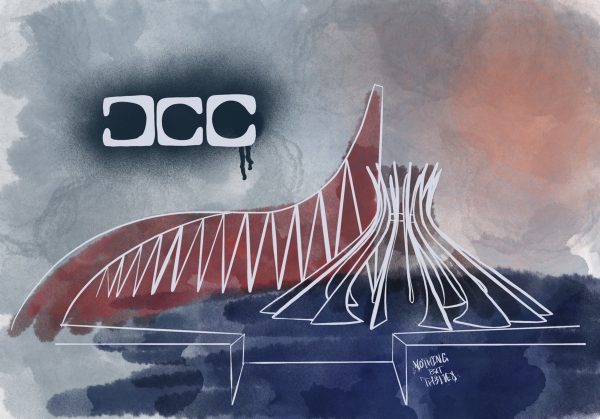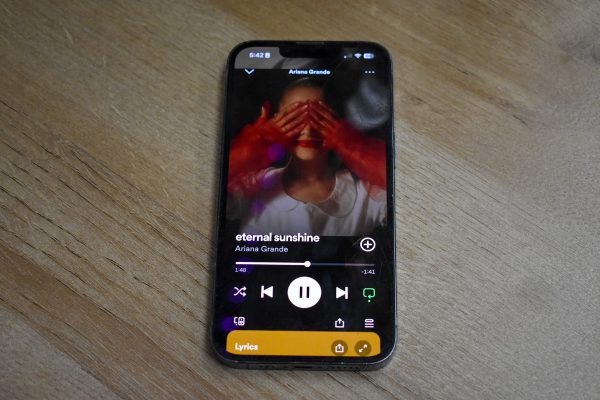15 Tips and Tricks for Traveling to Europe
June 7, 2017
Last month I had the opportunity to travel to Scotland. Although this wasn’t my first time traveling to Europe, I still managed to learn many new things about the process. From this experience I have created a list of 15 tips and tricks for traveling to Europe, from preparation to packing to accommodations. Are you planning on traveling to Europe this summer, or some other time in the future? Do you feel unprepared or overwhelmed? If so, then this is the list for you.
- Order currency. Before you leave for your trip, it is highly recommended that you order at least some money in the country’s currency so that you can hit the ground running. You never know when you will need cash, considering some places do not take cards. Also, once you arrive in a different country, exchanging U.S dollars can be much more expensive than ordering the money.
- Look into booking an Airbnb. Airbnbs are a great alternative to staying in hotels for many reasons. In the long run they often are less expensive, while also being provided in many central areas. Airbnbs allow you to experience more of the culture of the country and the lifestyle of the local civilians. Not only that, but they also can be much more comfortable than a cramped hotel room considering many are apartments or houses. While in Scotland, I stayed at an Airbnb and I can easily say it was much better than a hotel room. The flat that I stayed in was located in a central part of the city and allowed me to really get a feel for the culture and how people live.
- Turn off the cellular data on your phone. While in other countries, international calling and texting is very expensive. Unless you have bought a certain number of minutes or data, if you do any of these things without a pre-purchased plan, it is very expensive. Turn off your cellular data and/or keep your phone in airplane mode. This is a safe and reliable way to know that you won’t be charged. Communicate and use the Internet on WiFi only. Lots of places have WiFi so it is usually easily accessible. I ended up turning off my cellular data, and although I felt a bit secluded from my phone at times, it was good to unplug from social media while I was traveling in order to really take everything in with no distractions.
- Bring a charger converter. Most countries in Europe do not have the same outlets as we do in the U.S. You can even buy an “all in one” converter that conforms to many different types of outlets in case you don’t know the exact type you need, or will be traveling to multiple different countries. These converters are easy to find online or at “travel friendly” stores.
- Pack light. Packing light is an essential and important part of traveling. It can be difficult to part with your whole wardrobe, but in most situations you won’t wear everything you pack anyways. It is alright to wear the same thing more than once, and many hotels and Airbnbs are likely to have washers and dryers. While traveling it is almost guaranteed that you will acquire many souvenirs over the duration of your trip, so that extra space in your suitcase is a necessity.
- Bring a portable charger. These handy devices can often come in clutch when your phone unexpectedly dies. If you don’t have one it is a smart idea to purchase one, or many, before leaving. While out and about it is unlikely you will come across a convenient place to charge your device, and it’s even less like you’ll have the time to do so if you do find one. With portable chargers you are able to charge your device on the go without worrying about it dying or having to conserve the energy. For my trip I brought two portable chargers with me, which ended up coming in handy on multiple occasions. Whenever I didn’t have access to outlets I used my portable chargers, which saved my devices from dying many times.
- Bring a raincoat. Many places in Europe can have quite unpredictable weather. One second it is 70 degrees and sunny and the next mother nature will flip the switch and produce a complete downpour. You should always have a raincoat on you at all times so you are prepared and don’t get unexpectedly soaked.
- Pack comfortable shoes. While sightseeing you will most likely be doing a lot of walking. Bring a pair of comfortable shoes such as tennis shoes or Birkenstocks to prevent your feet from getting sore. If not, make sure you have band aids for your blisters. I wasn’t very smart and chose to not wear comfortable shoes often, which ended up causing me to acquire many gruesome blisters.
- Purchase a “tube” or “rail” card. If you are staying in a city, the subway can be a very useful resource. It is much easier and way less expensive than taxis while also transporting you to where you want to be in no time.
- Make reservations. If you are in a major city and planning on eating out, it can be helpful to make reservations. Downtown areas can get very crowded, especially at dinner time, so if you prefer to have a sense of security on a place to eat then this is a good idea.
- Bring a camera. There are many beautiful, picture-worthy sites in Europe so if possible, have a dedicated camera on hand. Often times the camera on your phone will not do the sites enough justice. Because I brought a camera with me, I was able to capture many memories that I can reflect on for many years to come.
- Have spare change on you at all times. In Europe many public places will charge you to use the bathroom unless you are a customer at a restaurant or store.
- Be cautious of road patterns. Being a pedestrian can be dangerous if you are not familiar with the road patterns in the country that you’re in. Take into consideration which side of the road cars are driving on and take the time to find crosswalks to ensure your safety. I can attest that being a pedestrian in an unfamiliar city was challenging at times. Because my brother had months experience navigating the streets already he was able to safely guide us, but I did witness many tourists almost getting hit by cars or putting themselves in danger due to not knowing road patterns.
- Download a translator app. If you are in a foreign country without a native speaker at your assistance, knowing a bit of the language is crucial. Having a translator app can be very useful in making sure you can somewhat communicate with others if needed.
- Don’t be afraid to try new things. Different countries will provide you with a new culture, unlike what you are used to. In order to get the full experience it is important to keep an open mind and be willing to try new things whether it be the food, lifestyle, or communicating in a new language.
***
Do you have any tips to add to this list? If you are traveling to Europe this summer, which country are you visiting?















